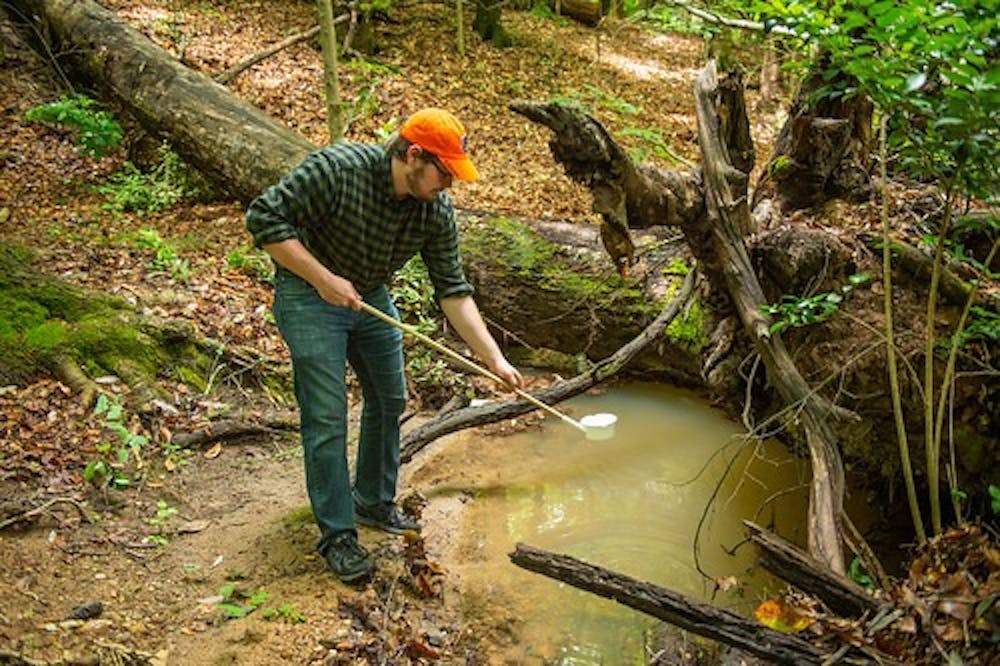One Health is a graduate certification program offered by the School of Forestry and Wildlife Sciences.
The program is a joint partnership with the College of Agriculture, College of Veterinary Medicine, School of Forestry and Wildlife Sciences and the University of Alabama at Birmingham’s School of Public Health.
“Our One Health Graduate Certificate provides students with an understanding of the nexus among human, environmental and animal health, which forms the basis of planetary health,” said Graeme Lockaby, associate dean for research for the School of Forestry and Wildlife Sciences. “Presently, health issues are very complex and often involve interactions among life cycles of pathogens and arbovirus vectors, human risk factors and environmental drivers.”
Lockaby said that awareness of the interactions between these links is especially important when facing increasingly volatile factors like population growth, climate change, changes in disease vector ecology and land use.
The certification program requires 15 credit hours of online coursework that involve examining public health threats like infectious diseases and assessing strategies for creating sustainable ecosystems.
Sarah Zhody, assistant professor of disease ecology, said students seeking certification through the One Health program will face issues that are complex and extraordinarily time-sensitive.
“The human population is rapidly growing, and our reliance on natural resources is stronger than ever, although the resources themselves are finite,” Zohdy said. “The most prevalent health problems humans face in modern times are heavily linked to environmental conditions and ecosystem health.”
The certification program is essential to providing professionals with the tools needed to tackle environmental health threats, said Janaki Alavalapati, dean of the School of Forestry and Wildlife Sciences.
“The Auburn University One Health online graduate program clearly represents an area of crucial need and importance within our state as well as nationally and globally,” he said.
It’s estimated that 60% of human infectious diseases and 70% of emerging human diseases come from wild or domesticated animals. Examples of this include rabies, Rift Valley fever, West Nile virus and brucellosis.
Lockaby said the health of animals can act as a warning for transmission of diseases in humans. The risk of West Nile virus is partially determined by environmental factors that encourage reproduction of Culex mosquitoes.
He said these determinants, when grouped with socioeconomic factors, call for an urgent, wide-scale endeavor.
“It is crucial that people engaged in many types of activities—such as health specialists, city managers, stormwater managers and urban planners—understand the complexity and degree to which causal factors may be interrelated and act accordingly,” Lockaby said.
He said the program will likely expand as environmental threats worsen.
“The need for training from the One Health perspective will become even more acute in the future, as climates shift and diseases emerge in new locations,” Lockaby said. “Our goal is to provide a starting point for the One Health conversation that must continue indefinitely.”
Do you like this story? The Plainsman doesn't accept money from tuition or student fees, and we don't charge a subscription fee. But you can donate to support The Plainsman.





